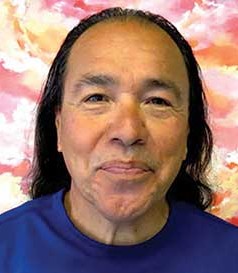Other Voices is an opinion column that provides a criminal justice forum where different viewpoints can be expressed by people from all political, socio-economic, ethnic and cultural backgrounds.
As with so many other current policing practices, Officer Crisis Intervention Team (CIT) training is a lot more about Public Relation than about truly preparing officers adequately to respond to a crisis call involving mental illness issues.
Cops in America are trained universally to go into a situation with force, come out alive, shoot first and ask questions later.
The unwritten code of American Policing is, “As quickly as possible control the problem before the problem controls you”. Cops that kill civilians resort to the ultimate and permanent control option.
This is exactly what happened in 1987 in Memphis, Tennessee, where four white cops responded to a 911 call from a public housing project.
The 4 cops encountered a black young man with a knife in hand threatening to harm himself and others. The cops demanded that the man put down the knife, when the man refused the police shot and killed him.
Remember the unwritten mandate: cops are to show force, come out alive, shoot first and ask questions later, end of story.
Crisis Intervention Team
In fact this tragic killing is the beginning of the modern Crisis Intervention Team (CIT) Training model in American Policing.
You see the young black man that was killed by the cops has a history of serious mental health issues and problems. His mental illness causes him his life, but it began a movement in American policing to attempt to respond differently to crisis responses.
“Sometimes the accident (the killing of the young black man) has to happen before the danger light goes on”, stated Police Major Sam Cochran, the original founder and coordinator of the Memphis Police Department Crisis Intervention TEAM (CIT). And so began the American Policing CIT movement.
Fast forward to Oxnard and the OPD began their CIT training program in 2001, using a modify hybrid model that they adopted from the San Jose and Memphis police departments.
According to public records the OPD’s CIT training is a 40-hour course primarily taught by volunteer’s mental health experts. Some of the course objectives are to increase ability of the officer to recognize signs of mental illness. Increase empathy of the officer regarding mental illness.
Decrease officer anxiety in the dealing with the mentally ill.
The Meagan Hockaday Shooting
OPD senior officer Rodger Garcia was apparently CIT trained and within twenty seconds according to news account Meagan Hockaday was shot dead by Garcia.
There will be continued community uproar, and mass demonstrations about the countless killing being perpetrated by law enforcement; the nation’s police and the many supporters of the police and their deadly tactics will counter with lawful and justifiable arguments, and this national spectacle will see-saw back and forth in pained, pathetic and shrilled debate, but nothing will change.
The cop survival code will continued to trump everything, and community efforts to get the cops to clean house and reform will be ignored.
The “New”American Cop
The clock cannot be turned back on over three decades of political propaganda and media manipulation that has diabolically fanned the flames of fear and hate throughout this nation creating the “new” American cop in military mode fighting against domestic terrorist and enemies; the mentally ill, the homeless, minorities, addicts/alcoholics, youth, gays, immigrants, terrorist (real or imagined) and others.
It is a classic us against them mentality, and any effort at community policing, CIT included, initiated by the cops is a fraud, because the cops are at war with the American public.
So while it is tragic, it is not surprising that when cops respond to crisis calls in the community far too often a human being (the enemy) is killed. The only way to change the current community crisis intervention protocol is to take the cops out of the equation as first responders. That where the community steps in.
Creating Crisis Intervention In Oxnard
In Oxnard we must take the first steps in creating a civilian crisis intervention response protocol when some in the community is reaching out for help and intervention that potentially involve mental illness and addiction issues.
We might call the civilian response team SAVE, as in Save All Value Everyone. Our primary objective is to save lives and get help for the person in acute crisis and the immediate persons affected by the collateral damage created by the crisis.
This is a radical departure from the current CIT response which historically demonstrates that cops do not have the patience, nor the “the mind set’ to wait out a crisis; which ironically is generally the most successful and prudent solution to a crisis intervention involving the mentally ill and the addicted.
Community Outreach
The Oxnard Multicultural Mental Health (OMMH) Coalition is reaching out to all of the community, the leadership of the OPD, the community stewards, parents and youth, to all citizens of Oxnard that want to end the killing of our people.
We do not pretend to have a program much less an answer, but we do commit to love and non-violent intervention in our community to saving lives.
We commit to sacrificing our lives, if necessary, to save the life of a troubled soul. In the moment of intervention we are not concerned with the letter of the law but the sanctity of life; so that the miserably pained soul currently in crisis can be give the opportunity of one day finding enlightenment and transformation.
Love demands that of all of us.
The universal spirit reminds us that within us all there can emanate that divine light of redemption; with love, time and breath we can all reach that divine essence. OMMH invites all of the community to join our SAVE movement, we arm ourselves with the love for our community, and with love and courage we can walk into the belly of the beast.
**********************
Armando Vazquez, is an owner of Café on A / Acuña Gallery and Cultural Center in Oxnard, California The Café on A has had a historical presence in the Ventura County art scene for 15 years.
For more information on Cafe on A:
Executive Directors Dr. Deborah DeVries and Armando Vazquez
438 South “A” Street, Oxnard , CA 93030 Box 1387, Oxnard 93032-1387
Phone: 805-216-4560


